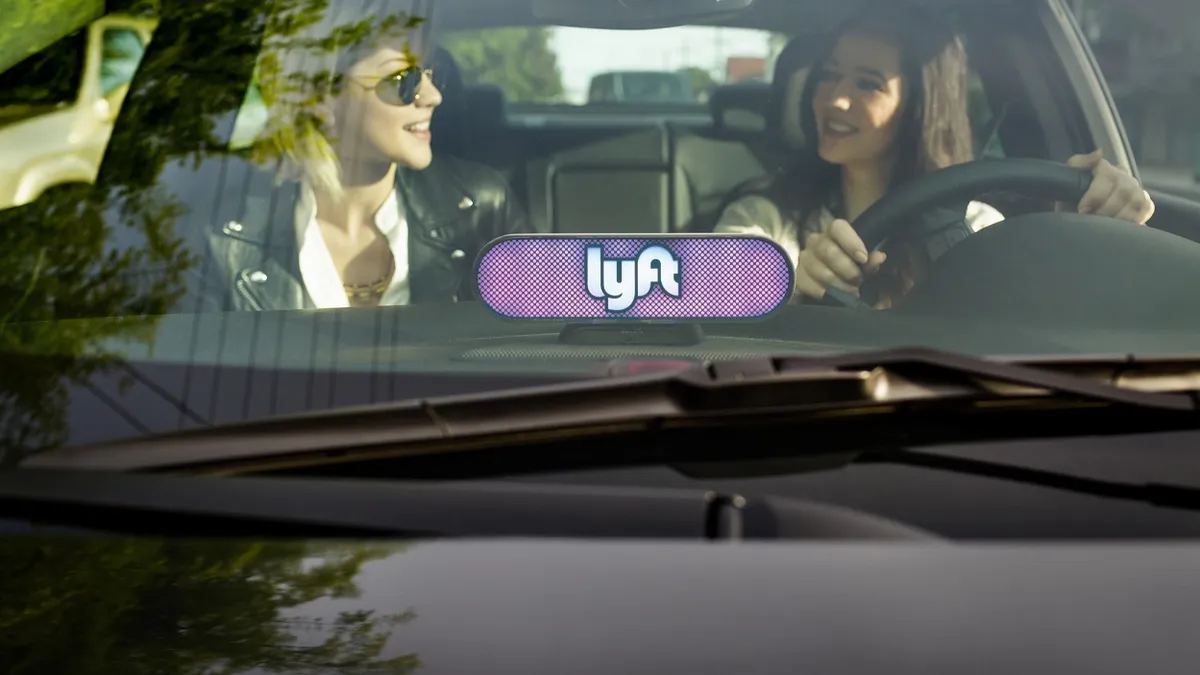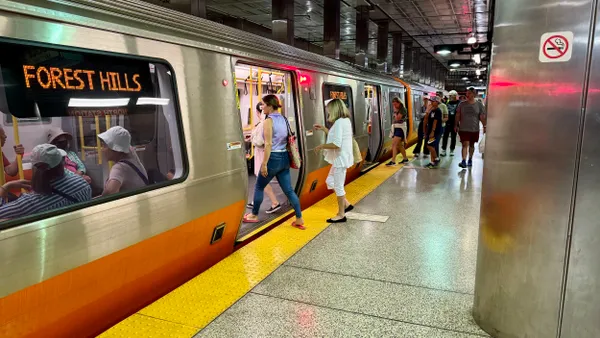Dive Brief:
- Lyft, which reported a 48% drop in revenue during Q3, is looking to expand into delivery, which it piloted early in the pandemic to provide drivers with additional ways to earn money while rides were down. Its initial program, Essential Deliveries, was designed to deliver essential items, including meals, to government agencies, local nonprofits, businesses and healthcare organizations.
- During an earnings call on Tuesday, Co-Founder and President John Zimmer said the company has talked with retailers and local businesses about their issues with current delivery models, particularly high commission fees. He said Lyft could create a model where it just fulfills orders without coming in between the consumer and the business, Zimmer said.
- If Lyft more prominently enters food delivery and finds a way to reduce high commission rates, it could create a more competitive landscape, which has diminished as delivery companies consolidate, and push rivals to rethink their commission-based models.
Dive Insight:
Through its conversations with businesses, Lyft found one of their biggest desires was to have a way to fulfill orders without a third-party marketplace that adds to delivery costs. Retailers and restaurants just want delivery capabilities, which Zimmer said Lyft can provide with its over 1 million drivers.
Adding delivery would help Lyft diversify its business and be more competitive with Uber, which saw a 125% increase in delivery revenue even though its mobile revenue slipped 53%. Lyft initially partnered with Grubhub in October to offer Lyft Pink members a complimentary Grubhub+ membership, which includes free delivery.
"What's happening to restaurants in the time like this, when they sell food on a platform, like Uber Eats, they get charged 20% to 30%, they lose 20% to 30% of their revenue to that platform," Zimmer said.
And without a consumer-facing app, Lyft could launch a service without the additional costs needed to build and maintain that platform, instead allowing restaurants to create their own online ordering capabilities. Many chains, like Chipotle, Denny’s, Noodles & Co., offer direct online ordering on their websites or apps, but have third-party providers fulfill the delivery. Chains have been turning toward this hybrid delivery model to help keep costs down.
If Lyft is able to find a way to make money off delivery without having to charge steep commissions, it could have a leg up on other companies that rely on these commissions, especially as municipalities increasingly consider caps on commission.
"The delivery model plays into our strengths, including making full use of our existing technology," Zimmer said.












